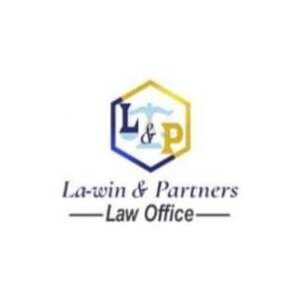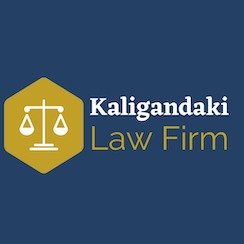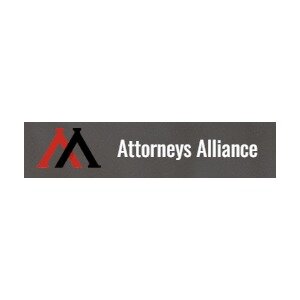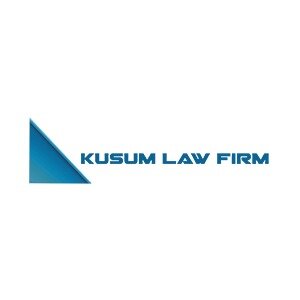Best Education Law Lawyers in Kathmandu
Share your needs with us, get contacted by law firms.
Free. Takes 2 min.
List of the best lawyers in Kathmandu, Nepal
About Education Law in Kathmandu, Nepal
Education Law in Kathmandu, Nepal, encompasses the set of laws and regulations that govern the education system, schools, students, and educators in the region. This body of law is designed to ensure that education services are delivered efficiently, equitably, and with accountability. With the rapid growth in educational institutions and the diversity in the education sector, the legal framework surrounding education is crucial for managing and resolving disputes related to admissions, student rights, teacher conduct, and compliance with educational standards. The Education Act and related policies are central to this area of law.
Why You May Need a Lawyer
Individuals or institutions might require legal assistance in the field of Education Law for various reasons. Common situations include disputes over admissions policies, disagreements regarding student discipline or rights, issues with teacher contracts, and compliance with educational standards and government regulations. Additionally, educational institutions may seek legal advice when developing policies to ensure they are legally sound and compliant with local laws.
Local Laws Overview
The Education Act is the primary legal framework governing educational activities in Kathmandu, Nepal. Key aspects of local laws include the rights and responsibilities of students and educators, standards for educational institutions, procedures for addressing grievances, and policies relating to school management and curriculum standards. These laws aim to ensure a fair and equitable education system, protect the rights of all stakeholders, and maintain high standards that align with national educational objectives.
Frequently Asked Questions
What is the role of the Education Act in Nepal?
The Education Act is the cornerstone of education law in Nepal, outlining the responsibilities of educational institutions, government bodies, and ensuring the rights of students and teachers are protected.
Are there laws concerning the safety and discipline of students in schools?
Yes, there are specific regulations regarding the safety and discipline of students which schools are required to follow, ensuring a safe and conducive learning environment.
How does the law address discrimination in education?
The laws in Nepal have provisions to prevent discrimination based on gender, caste, disability, and other factors, promoting an inclusive education system.
What rights do students have under Nepalese education law?
Students have rights to a safe learning environment, freedom from discrimination, access to quality education, and a procedure for addressing grievances.
What legal recourse do teachers have if their employment rights are violated?
Teachers can seek legal redress through labor courts or education authorities if there are violations of their employment contracts or labor rights as per the relevant acts and regulations.
How are educational institutions regulated in Kathmandu?
Institutions are regulated through licensing, accreditation, and compliance with educational standards set by government bodies and educational authorities.
Can foreign educational programs be legally implemented in Nepal?
Yes, but they must meet the criteria and obtain approval from governmental bodies like the Ministry of Education to ensure alignment with national education policy.
What should a school do if accused of non-compliance with education standards?
Schools should seek legal advice immediately, review their compliance procedures, and address any deficiencies to align with education standards.
Is homeschooling legal in Nepal?
Homeschooling is not widely regulated in Nepal and typically falls outside the structured educational policies; however, families choosing this option should seek legal guidance to ensure compliance with national education objectives.
What legal steps should be taken for forming a new private school in Kathmandu?
One must obtain a license, ensure compliance with the national curriculum and standards, and address legal requirements for staffing and facilities as mandated by local and national laws.
Additional Resources
For those seeking further assistance, the following resources may be helpful:
- Ministry of Education, Science, and Technology - Offers guidance and information on national education policies.
- Kathmandu District Education Office - Provides local oversight and support for educational institutions.
- Nepal Bar Association - Can assist with finding legal professionals specializing in Education Law.
- Nepal Education Development Body - Offers resources related to educational standards and development.
Next Steps
If you need legal assistance in Education Law:
- Identify the specific issue and gather relevant documents and communication.
- Contact a lawyer specializing in Education Law through professional legal associations or recommendations.
- Schedule a consultation to discuss your case and understand your legal rights and responsibilities.
- Consider engaging the lawyer to represent and advise you in matters requiring legal intervention.
- Stay informed and involved throughout the legal process to ensure that your rights and interests are adequately represented.
Lawzana helps you find the best lawyers and law firms in Kathmandu through a curated and pre-screened list of qualified legal professionals. Our platform offers rankings and detailed profiles of attorneys and law firms, allowing you to compare based on practice areas, including Education Law, experience, and client feedback.
Each profile includes a description of the firm's areas of practice, client reviews, team members and partners, year of establishment, spoken languages, office locations, contact information, social media presence, and any published articles or resources. Most firms on our platform speak English and are experienced in both local and international legal matters.
Get a quote from top-rated law firms in Kathmandu, Nepal — quickly, securely, and without unnecessary hassle.
Disclaimer:
The information provided on this page is for general informational purposes only and does not constitute legal advice. While we strive to ensure the accuracy and relevance of the content, legal information may change over time, and interpretations of the law can vary. You should always consult with a qualified legal professional for advice specific to your situation.
We disclaim all liability for actions taken or not taken based on the content of this page. If you believe any information is incorrect or outdated, please contact us, and we will review and update it where appropriate.

















